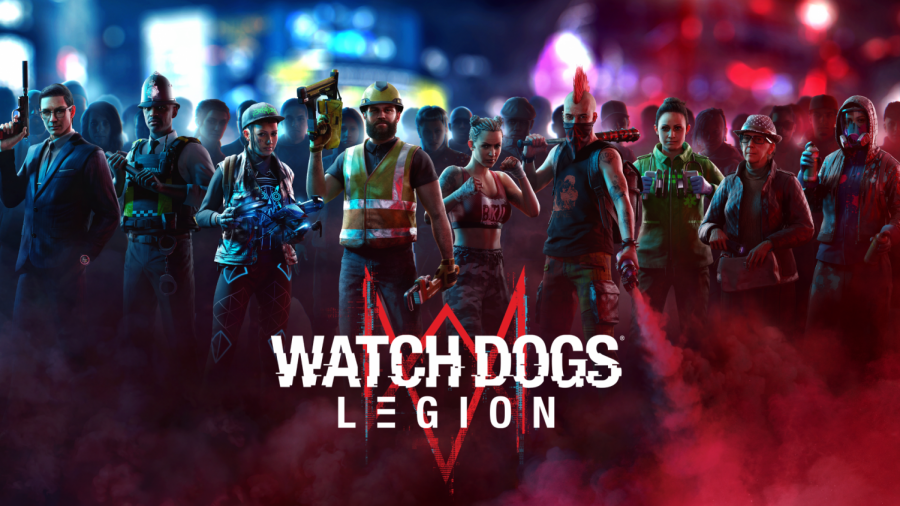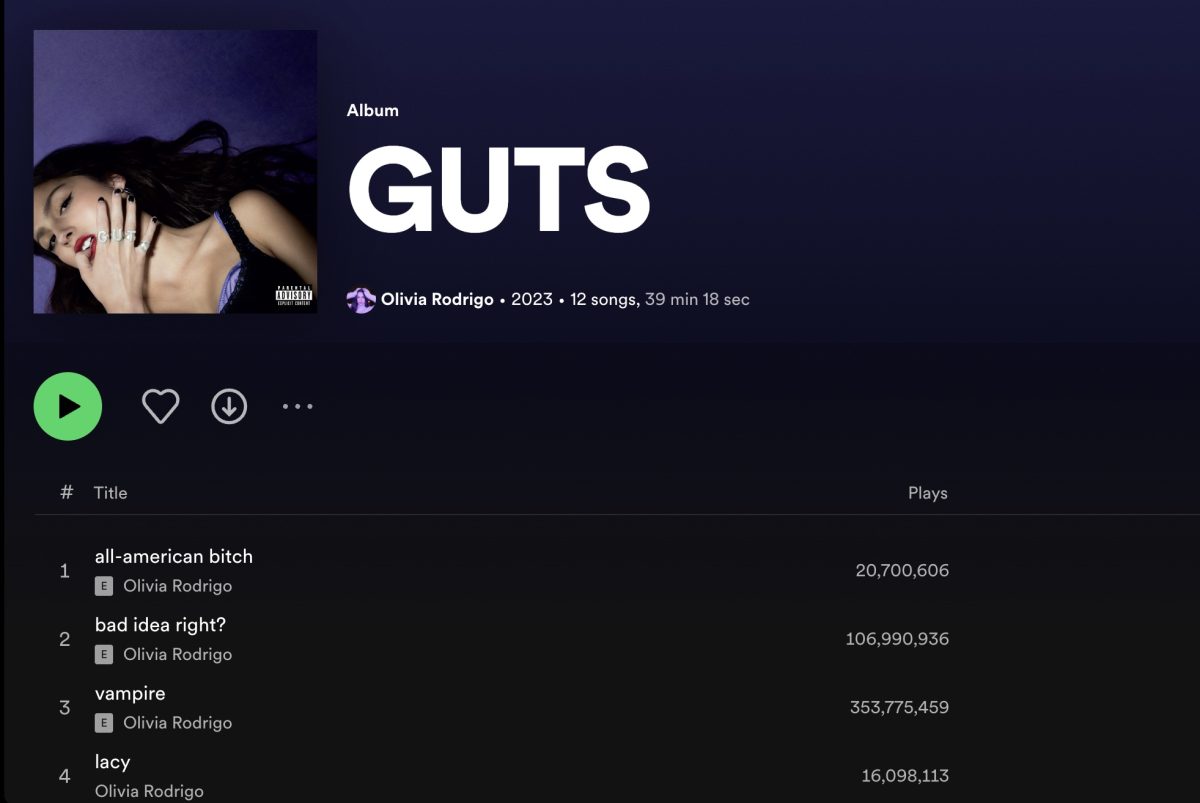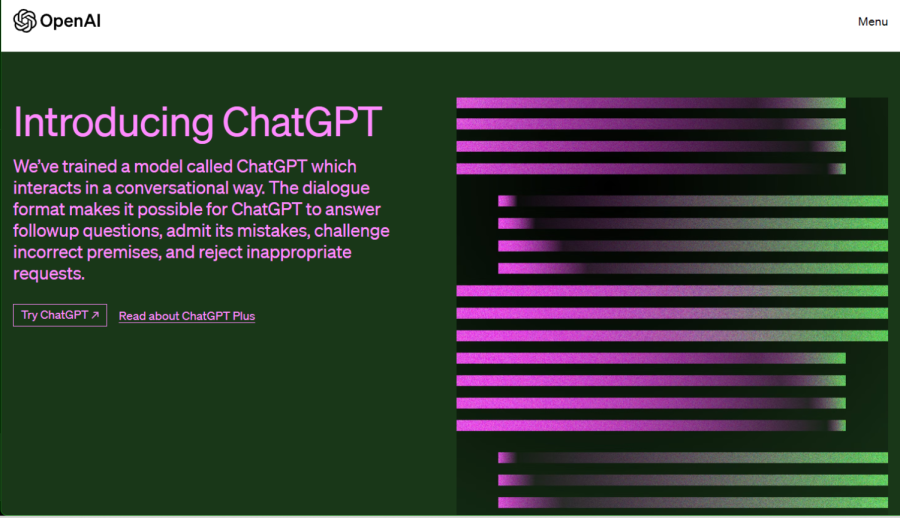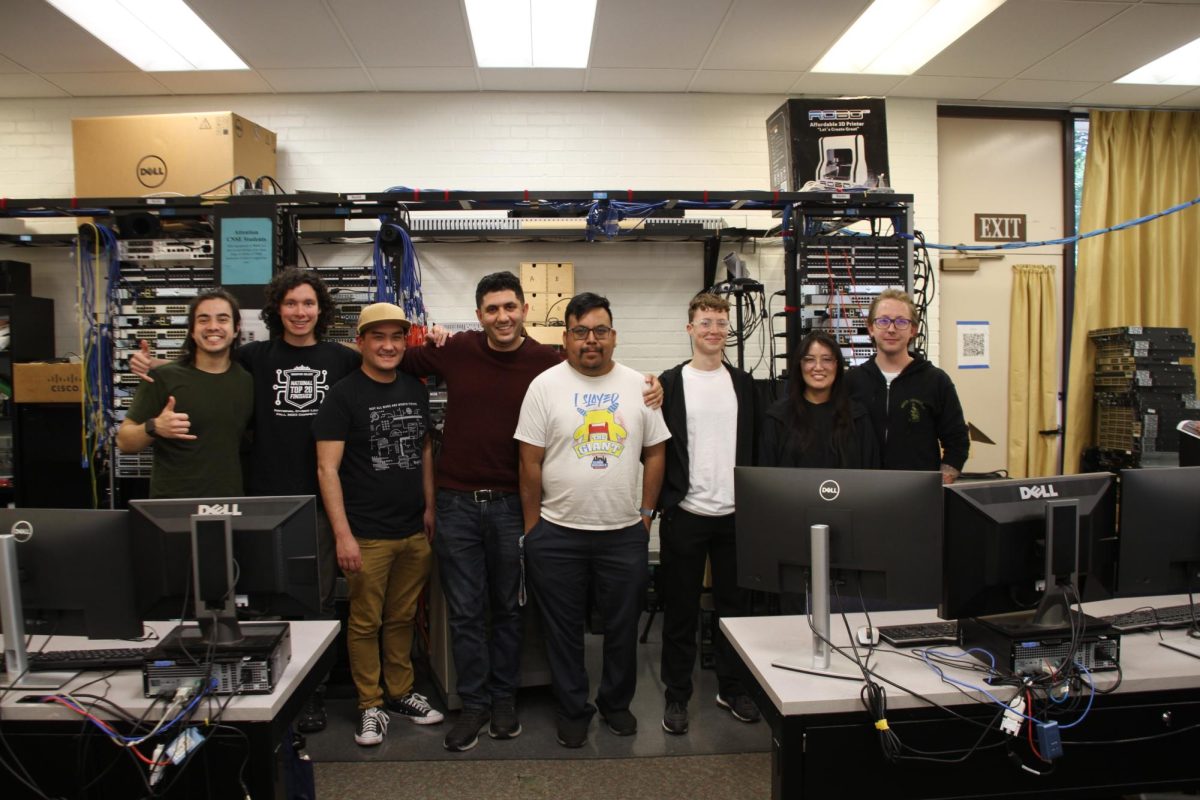A spy, a janitor, a construction worker, a pickpocket and a doctor walk into a bar. The janitor’s there for a drink, the spy and the construction worker are playing darts, the doctor’s reading a newspaper in a corner booth and the pickpocket drunkenly leans on the bar. Any one of them could be the player character. The player could also be anyone else in the bar, anyone walking down the street outside, or indeed, anyone in all of London.
Crowd Control

That’s the wild thing about Ubisoft’s “Watch Dogs: Legion”, the player isn’t assigned a character or told to make their own. Instead, the player gets to form a cell of resistance fighters out of everyday citizens to fight back against authoritarian powers controlling a technologically advanced London.
These recruits don’t come from a menu of generated characters either; players can scout any character in the game, just walking around the city. Much like real life, each character has certain characteristics that set them apart.
Credentialed workers can get into restricted sites without raising suspicion, janitors can hide in plain sight by sweeping up floors and sidewalks, while tech workers can break into computer systems and steal information quicker.
The sheer variety of characters gives players the freedom to choose how to approach each mission. Stealth could mean sneaking in as a spy and quietly eliminating enemies guarding objectives, or it could mean throwing a remote controllable spider-bot over a fence and maneuvering it from cover to cover to sneak past enemies.
Meanwhile, going in guns blazing could involve taking control of enemy drones and using them to fight enemies without leaving cover, or it could mean storming in with a machine gun like Rambo.
A World of Opportunities

Ubisoft’s near-future version of London is the beating heart and soul of “Watch Dogs: Legion,” and it’s been built with an amazing level of detail.
Drones fly through the skies, delivering packages, issuing warnings to passersby, carrying cargo or filming news footage. Electric vehicles faintly whine through the streets alongside the rumble of gas powered vehicles, many self-driving.
Checkpoints set up by oppressive paramilitary corporation, Albion, stop and scan people as they walk by, logging them as automated turrets keep watch. Giant holograms hover and sometimes fly through the air outside of buildings as advertisements.
Geographically, London and seven of its surrounding boroughs are available to explore and/or rampage through; each with it’s own sense of place. Westminster feels historical and storied, with famous landmarks like Buckingham Palace, Trafalgar Square and the British Parliament scattered about.
In contrast, Camden High Street is wonderfully punk while Southwark has a gritty, industrial feel and Lambeth is rundown and graffitied outside of it’s riverbank areas.
Moreover, the people fit their surroundings. In less affluent areas, homeless people sleep in parks and panhandle for change with litter cluttering the sidewalks, while politicians and white collar workers walk the streets of Westminster and London sharply dressed.
Exploring each of these boroughs and seeing all the minute, easily missed details Ubisoft has put into it’s version of London is an absolute treat in and of itself.
Besieged from Above and Below

From above, the London of “Watch Dogs: Legion” is controlled by a private policing corporation named Albion. Albion has been given carte blanche by the British government to police and secure London in the wake of a terrorist attack. Albion’s drones fly overhead, armed with missiles, machine guns and pepper grenades, while jackbooted thugs randomly stop, frisk and arrest anyone they suspect of being a criminal, terrorist or illegal immigrant.
Meanwhile, London’s underbelly is run by Clan Kelley, a criminal syndicate that sells drugs, slaves and illegally harvested organs.
Standing in opposition to Albion and Clan Kelley is the player’s organization, DedSec.
Framed for the terrorist attack that Albion used to seize power, DedSec is an underground resistance organization dedicated to exposing and stopping abuses of power by governments and corporations.
Happily flaunting its punk and countercultural aesthetics, DedSec uses technology to hack, sabotage and infiltrate its targets, aided by a quippy artificial intelligence named Bagley.
Story-wise, “Watch Dogs: Legion” revolves around the player bringing DedSec’s London branch back from the brink of extinction, clearing DedSec’s good name and freeing the people of London from their oppressors.
Happily, the technological near-future of “Watch Dogs: Legion,” lends itself to “Black Mirror” style tales of horror, leading to some genuinely terrifying and discomforting missions. One particular mission revolving around a brain mapping project is particularly chilling.
Unfortunately, Ubisoft doesn’t always make full use of this potential, especially with recruitment missions. Recruitment missions can be recycled across different recruits without any changes based on the character’s position in life.
For instance, an MI5 agent and a homeless person had the exact same recruitment mission, including dialogue lines, mission objectives and quips from DedSec’s AI computer.
Furthermore, the main story tends to stick towards more traditional ground seen in films like “Captain America: The Winter Soldier” and “Kingsmen: The Secret Service.”
Play it By Ear

Similar to Ubisoft’s “Assassin’s Creed” series, “Watch Dogs: Legion” combines a third-person perspective with fluid movement mechanics and utilitarian abilities.
Moving around, players can scramble up 8ft. walls, climb storm pipes, and parkour over waist-high geometry. This system lets players smoothly navigate the metropolitan landscape and reposition seamlessly in a firefight.
To get around town, players can also steal or hack vehicles to zoom around town from objective to objective. Some of the cars are self-driving as well, meaning they’ll automatically drive the player to a marked waypoint, obeying the rules of the road along the way.
In terms of abilities, players have a selection of tools and hacks available, useful for accessing information, deceiving enemies or combat. For keeping stealthy, the ability to use an enemy’s implants to distract or shock them for a quick takedown before they can call for help often makes the difference between quietly completing a mission or having to fight off enemy reinforcements guns blazing.
Eventually though, fights do break out.
For outright combat, the player can utilize non-lethal and lethal tools to fend off enemies. All characters can make use of non-lethal shock weapons to knock enemies out, though other recruits come equipped with their own unique lethal weapons to bring to a firefight.
Furthermore, players can also unlock drones and inhibiting gadgets that can turn the tide on groups of enemies. One unlockable ability lets players hack and control enemy drones to fight with, while another sets those drones to automatically seek and attack their masters.
In terms of missions, objectives usually require that the character or a remote controlled robot hack into a server, solve power grid puzzles, unlock some closed circuit terminals and download some access keys along the way.
Overall, “Watch Dogs: Legion” very much supports completing missions in different ways.
The player character could stand on the sidewalk outside the mission area, remotely piloting a small robotic spider through small spaces and vents to an objective, taking out guards along the way with electric shocks and hiding the bodies with an augmented reality cloaking device.
Or the player could personally go in, finding gaps in patrol routines by visible entryways or summoning a huge cargo drone to fly right over enemies, using a mixture of distractions and silent takedowns to get through contested spaces to the goal.
Combat-oriented players can go in guns blazing, taking out both human and drone alike.
However, it’s easy to become overwhelmed, surrounded and taken out by swarms of enemies once they know where the player is.
“Watch Dogs: Legion” balances its combat with consequence. Stealth and remote infiltration offer little to no risk towards the player’s characters. But once a player chooses to fight out in the open, the risk that player is eliminated and forced to change to another character increases.
A defeated player character will suffer consequences, ranging from jail time to recovering in the hospital; In some cases, characters can even die permanently.
Glitches in the Matrix

Unfortunately, “Watch Dogs: Legion” doesn’t always perform well.
Playing on an Xbox One S, “Watch Dogs: Legion” fully crashed back to the Xbox One home screen 11 different times over a seven day period, every time with no discernible cause or trigger. It’s incredibly irritating to be in the middle of a mission or just walking around sightseeing, only to crash completely out of the game and have to boot up the game from scratch. Luckily, these crashes didn’t seem to affect saved games.
Playing on a Playstation 4 Pro, ”Watch Dogs: Legion” has few problems starting and running. On the other hand, there seemed to be some database corruption issues that were made known in the first couple of days of receiving and testing the game. Those issues were inconsistent and quickly resolved within a few days.
There are some minor graphical bugs which keep the game in focus for about 30 meters in front of the character before the background comes in blurry. Not all the time, but it happens here and there.
Lastly, it seems that “Legion” takes up significant resources to run on a Playstation 4 Pro, leading to cooling fans running for longer than previously noticeable with other games and load times running just past the point of uncomfortable waiting.
Come One, Come All

“Watch Dogs: Legion” includes a wealth of accessibility options to help cater to players with different needs.
Visually, there are three different colorblind modes available, designed to cater to the most widespread forms of colorblindness, which alter a wide array of visual elements within the game.
There are also different forms of available subtitles, closed captions and audio captions available to assist players with hearing difficulties. Full menu narration and text chat-to-speech conversion is also available for those who need it.
While these might not be necessary for everyone, enabling a game to cater to the needs of players is undoubtedly a good thing.
All Said & Done

Dominic’s Take:
When Watch Dogs: Legion is firing on all cylinders, it’s absolutely amazing. It’s version of London is vibrant and bustling. Getting to play as almost anyone you meet off the street is an absolutely wild experience. Unfortunately, repetitive side missions and frequent game crashes keep “Watch Dogs: Legion” from its full potential.
Score – 8.5 (9.2 without the frequent crashes)
John Louie Menorca’s Take:
“Watch Dogs: Legion” builds upon the work of it’s predecessors, from their open-world formulae to their themes of abuse of power through technology. These traits help foster a greater sense of appreciation for things like data rights and personal privacy. Despite a sense of Ubisoft déjà vu, “Watch Dogs: Legion” will reward players who invest their time in it.
Score – 8.0
*Editor’s Note – For this review, Two game codes were provided by Ubisoft for “Watch Dogs: Legion,” one for Playstation 4 and one for Xbox One.















